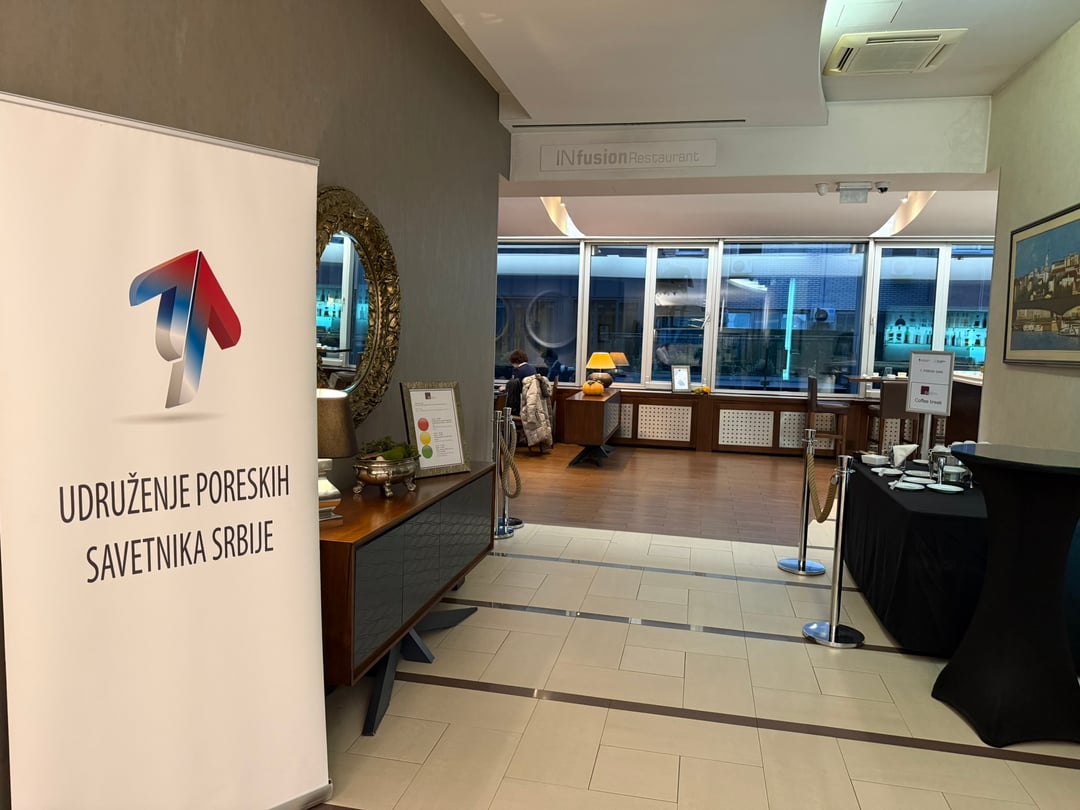
Continuing our series of professional articles on corporate crime, this text focuses on the criminal offence of Corporate Fraud, a form of white-collar crime we frequently encounter in practice in Serbia. As in our previous article, we place emphasis primarily on practical considerations, relevant case law, and the key issues we face in our daily work, deliberately avoiding excessive theoretical analysis in order to make the content as accessible and understandable as possible to a broad audience from the business sector.
Corporate Fraud is defined under Article 223 of the Criminal Code of the Republic of Serbia. The law provides as follows: ''Whoever, in the conduct of a business activity, with the intent to obtain unlawful material gain for themselves or another, by misrepresenting or concealing facts, deceives or keeps another in deception, thereby inducing them to act or refrain from acting to the detriment of the property of the business entity for which or within which they work, or another legal entity, shall be punished with imprisonment of six months to five years and a fine.''
Similar to the offence previously discussed in our earlier article (Corporate Embezzlement), this offence also provides for two aggravated forms. An aggravated form exists where the unlawful gain exceeds RSD 450,000 (approximately EUR 3,846), in which case the perpetrator shall be punished with imprisonment of one to eight years and a fine. In the most serious form of this offence — where the unlawful material gain exceeds RSD 1,500,000 (approximately EUR 12,820) — the Criminal Code prescribes a sentence of imprisonment ranging from two to ten years, together with a fine.

The legally protected interest (object) of the criminal offence of Corporate Fraud under Article 223 of the Serbian Criminal Code is, primarily, property as a whole—not merely certain forms of property—of entities participating in commercial transactions. At the same time, the law also protects legal certainty within that sphere. Unlike the offence of ordinary fraud, where the protected property belongs to a private individual, the legislator here protects the assets of an entity engaged in business activity, that is, a legal person operating on the market with the aim of generating profit or economic gain (within the meaning of Article 112(21a) of the Criminal Code). The specificity of this offence lies in the fact that criminal law protection is directed at legal relations arising from business operations, where the abuse of trust may have far-reaching consequences not only for individual legal entities but also for the functioning of the market as a system.
Unlike the general criminal offence of fraud under Article 208 of the Serbian Criminal Code, which may arise in various everyday contexts, Corporate Fraud is intrinsically linked to the professional sphere, where the perpetrator exploits business mechanisms and the legal form of corporate entities in order to obtain unlawful material gain. Precisely for this reason, faced with difficulties in applying general fraud provisions to commercial relations, the legislator introduced a specific provision—Article 223 of the Serbian Criminal Code—targeting more complex and often sophisticated forms of deception that would not easily fall within the scope of the general offence of fraud. The aim is to protect legality and trust in commercial relations and to prevent the distortion of market behaviour through misrepresentation of facts, concealment of risks, or passive maintenance of a mistaken belief on the part of business partners.
For this reason, Article 223 provides a higher level of protection to market participants, clearly delineating the boundary between acceptable commercial risk and criminally relevant deception. In doing so, it preserves the integrity of commercial relations and enables legal entities to base their business decisions on reliable information and genuine declarations of intent, without fear of being exposed to insidious forms of deceit disguised in commercial structures. In this way, the criminal provision not only protects the specific interests of injured parties but also reinforces trust in the market as a whole.
Although the offence of fraud under Article 208 of the Serbian Criminal Code (so-called ''ordinary fraud'') and the offence of corporate fraud under Article 223 are, in essence, closely related, the distinction between them lies precisely in the legally protected interest. In the case of ''ordinary'' fraud (Art. 208), the protected interest is the property of an individual—that is, protection against deception in everyday, often non-commercial, dealings. In contrast, corporate fraud (Art. 223) expands the scope of protection to include not only the assets of parties to legal transactions, but also legal certainty and stability within the sphere of business operations. Particular importance is placed on safeguarding trust in the accuracy of declarations of intent and the propriety of actions within commercial transactions. Accordingly, corporate fraud is subject to stricter sanctions and is more precisely regulated in normative terms, due to its potential to cause harm to the wider economic community.

The actus reus of the offence of Corporate Fraud involves deceiving or maintaining another in a state of deception through the misrepresentation or concealment of facts, with the intent of causing that person to act or refrain from acting to the detriment of the property of a legal entity. A key distinction between this offence and ordinary fraud lies in the fact that the resulting damage does not have to affect the assets of the deceived party directly, but may concern the property of the business entity in which or for which the perpetrator works, or the property of a third legal person.
Accordingly, the actus reus is not confined to the classical binary relationship between the deceived and the deceiver, but must be assessed within the broader context of responsibility in commercial operations. For instance, this offence would be committed where an employee of a company deliberately conceals information about a buyer’s insolvency, thereby inducing the company’s management to conclude a detrimental contract.
Deception, as a consequence of the actus reus, may arise from both active conduct and omission, i.e. passive maintenance of an already existing misapprehension. What is essential is that the perpetrator is aware of the other party’s misconception and has the intent not to correct it. Accordingly, the act of maintaining deception does not necessarily require active behaviour—it is sufficient that a person, who is aware of a false belief and under a duty to rectify it (for instance, a contractual guarantor), fails to do so. For example, a person who, during negotiations for the sale of equipment, fails to inform the buyer that the agreed guarantee is not in fact backed by the manufacturer, and remains silent on a fact the other party reasonably presumes to exist, may be held liable for maintaining deception. It is important to note that case law has established that the existence of the offence is confirmed where the deception was real and material, even if the injured party could arguably have been more careful.
Furthermore, the actus reus may be associated with the acceptance of commercial risk; however, this does not exclude criminal liability where, at the time of entering into the contract, the offender knew that the obligations would not be fulfilled. In such a case, this does not constitute mere contractual non-performance, but rather initial deception—where an individual utilises the form of commercial activity to induce the counterparty into error through a knowingly false representation of the actual circumstances. For example, if a company enters into a contract for construction works, while the perpetrator knows that the company lacks both the resources and the intention to perform, and only enters into the contract in order to collect an advance payment, there is a basis for criminal liability. Particularly in cases involving more significant damages (paragraphs 2 and 3 of Article 223 of the Serbian Criminal Code), such conduct often exceeds the threshold of acceptable commercial risk and constitutes a serious breach of trust in the context of business transactions.
The consequence of the basic form of the criminal offence of Corporate Fraud consists in the occurrence of pecuniary damage to the legal entity. A mere attempt to deceive is not sufficient; it is necessary that a person, having been induced or kept in error, performs or omits an act that causes harm to the assets of the commercial entity. In other words, actual damage must occur—mere attempts or endangerment are not sufficient. In practice, such cases typically involve situations where one company makes an advance payment based on false representations concerning the performance of a contract (e.g. false claims of possessing licences, inventory, equipment, etc.), and subsequently suffers financial loss.
The perpetrator of this criminal offence may only be a person acting within a commercial entity—whether as an employee, a responsible person, or even an external associate acting under contract on behalf of the entity. This means that the perpetrator must have the status of someone who ''acts for'' or “on behalf of” a commercial company. For example, the perpetrator may be a commercial director who, knowing that the company will not fulfil its obligation, falsely assures the customer that delivery will be made on time, thereby inducing the other party to make a payment. The essence lies in the fact that the individual exploits the organisational structure of the legal entity as an instrument for committing the fraud.
The subjective element of this offence is direct intent. The perpetrator must be aware that they are presenting false information or maintaining a misapprehension, and must intend to obtain unlawful financial gain for themselves or another. In the commercial sphere, the distinction between legitimate business risk and criminal liability is often a fine one.
For instance, if a person enters into a contract knowing that the company is currently illiquid, but with a realistic expectation of income prior to the due date of the obligation, this constitutes business risk. However, if it is known from the outset that no such income exists nor is expected, and the partner is misled into making a payment, then the element of intent under Article 223 of the Serbian Criminal Code is fulfilled.

The competent authority for acting upon criminal complaints for this offence is the Higher Public Prosecutor’s Office – specifically the Anti-Corruption Department. This jurisdiction derives from Article 2, paragraph 1, item 4 of the Law on the Organisation and Jurisdiction of State Authorities in Combating Organised Crime, Terrorism and Corruption.
Its essence lies in the combination of classic elements of fraud with the specificities of the business world, in which a veneer of legality may be exploited to conceal unlawful gain. Serbia, as a country currently intensifying its efforts to combat white-collar crime, seeks to provide an effective institutional response through specialised prosecution departments and more refined legislative solutions. However, in practice, there is an increasing need to distinguish acceptable commercial risk from criminally relevant behaviour – a question that proves pivotal for both prosecutors and defence lawyers: was the injured party truly deceived, or did they simply miscalculate market risk? Can criminal liability be established in cases where the allegedly defrauded party was, or should have been, aware of the risks but chose to ignore them in pursuit of profit? And where exactly lies the boundary between a civil-law relationship that later escalates into fraud, and one that from the outset bears the hallmarks of criminal conduct?
It is for these reasons that our law firm does not regard this offence solely as a tool of criminal prosecution, but rather as a legal mechanism for protecting our clients’ interests—one that operates in synergy with civil law remedies (such as damages, contract nullity, rescission, and provisional measures) to achieve equitable and effective outcomes in complex commercial disputes. The goal is not only to punish the perpetrator, but also to mitigate the harm, recover assets, protect the client’s reputation, and prevent further legal exposure. Timely identification of the constituent elements of this offence, paired with a clear legal strategy, is therefore a crucial step in safeguarding the rights and interests of business entities operating in Serbia.
Author: Kristijan Karan, Attorney-at-Law in Novi Sad, Serbia
Published: 20. July 2025
Latest News & Publications

Publication
Serbia–Estonia Double Taxation Agreement (DTA) on Income Taxes

News
Kristijan Karan Elected Chairman of the Statutory Commission of the Serbian Tax Advisers Association

Publication



